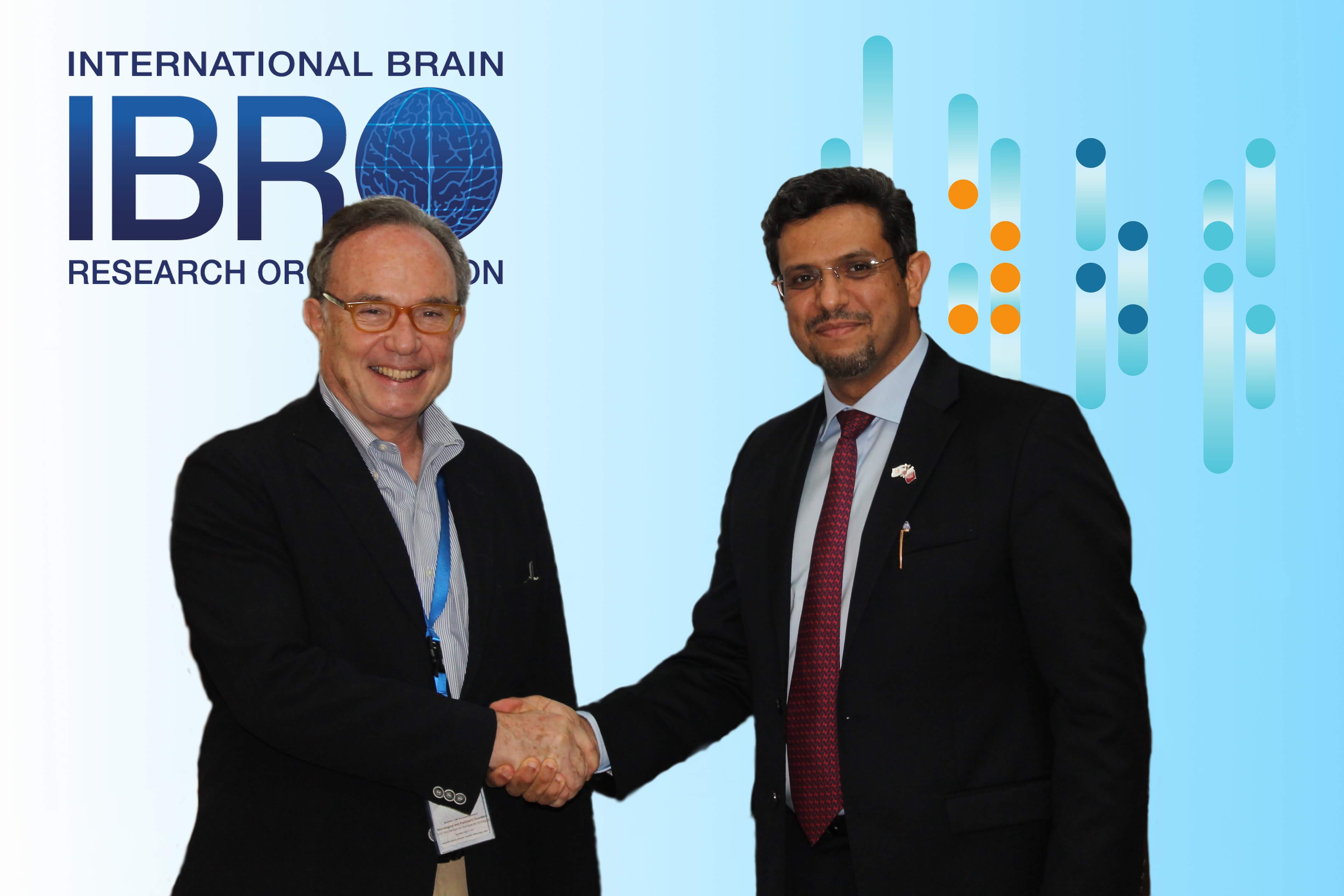
The Qatar Biomedical Research Institute (QBRI), one of Hamad Bin Khalifa University’s (HBKU) three specialized national research institutes, is hosting the IBRO-MENA-QBRI Annual Neuroscience Symposium on December 16th – 17th. Held in collaboration with the International Brain Research Organization (IBRO), a union of neuroscience organizations that aim to promote and support neuroscience training and collaborative research around the world, the event speakers and panelists will this year concentrate on the topics of autism, neurodegeneration, and epilepsy.
Additionally, from December 19th – 22nd, QBRI will host the IBRO-MENA Neuroscience School, an event that complements the Neuroscience Symposium that will bring clinicians and researchers to Qatar for a four-day study course titled “Epilepsy: From Pathophysiology to Diagnosis and Therapy”. At the “School” experts from QBRI, Weill Cornell Medical College-Qatar, Hamad Medical Corporation and participants in the symposium will share insight and analysis on the latest research on epilepsy with students from across the MENA region.
The Annual Neuroscience Symposium has been organized annually since 2011 as a way to bring leading researchers in the field of neuroscience together to discuss pertinent issues in their field and to raise the bar of brain research in the region. Last year was the first time the event took place in Qatar. IBRO and QBRI jointly established the IBRO Middle East North Africa (MENA) sub-regional headquarters in Qatar earlier this year, with QBRI designated as the permanent host organization for future events.
This year’s speakers include a number of neuroscientists from the United States such as Bassel Abou Khalil, Professor of Neurology and Director of the Epilepsy Center at Vanderbilt Heart Vascular Institute, Sarah Jane Webb, Associate Professor of Psychiatry and Behavioral Sciences at Seattle Children’s Research Institute at the University of Washington, and Margaret Elizabeth Ross, Nathan Cummings Professor in Neurology and Chair of the Neuroscience Graduate Program at Weill Cornell Medical College. Also presenting their research will be Faycel Hentati, Professor of Neurology and Head of Department at Mongi Ben Hamida National Institute of Neurology in Tunisia, and Saeed Abdulla Boholega, President of the Saudi Neurology Society and Professor at King Faisal Specialist Hospital and Research Center.
Dr. Hilal Lashuel, Executive Director of QBRI and Chair of IBRO MENA, commented: “QBRI is committed to do its part in establishing Qatar as an emerging center for healthcare innovation in support of Qatar National Vision 2030. Events like the neuroscience symposium fuel community interest in the field and open doors for collaborative research.”
He continued: “Hosting the neuroscience symposium in Qatar is an honor and provides an opportunity for those working in the field of neuroscience regionally to interact and engage with specialists from around the world in order to continue to build knowledge and expertise.”
Commenting on the Neuroscience School, Dr. Omar El-Agnaf, Professor of Life Sciences at Hamad Bin Khalifa University, noted: “In addition to providing a platform for brain researchers and scientists to identify gaps in knowledge and discuss key breakthroughs in the field, it is also important to QBRI, HBKU, and IBRO MENA that we share information with younger scientists and encourage their curiosity and study of neuroscience. At this year’s School we will be hosting students are from Sudan, Egypt, Jordan, Syria, Yemen, Palestine, Morocco, Tunisia, and Algeria, and it is our hope that the lessons, professional development, and networking sessions will help deepen their interest in the field.”
To coincide with the IBRO MENA symposium and school, QBRI have been holding a Brain Awareness Week. Several events have been held at schools, pre-school centers, and at Villaggio Mall.
QBRI’s Dr. Reem Al Olaby, who organized Brain Awareness Week, said: “QBRI believes in the great potential that lies within schoolchildren in particular. We held a competition called “The Brain Talk Competition” that aimed at encouraging students aged between 10 and 12 years old to think about the brain and to come up with a 10-minute movie that talks about the different parts of the brain in a creative way. Al Hammad International School took first place in the competition.”
She continued: “One of the main aims of QBRI is to bridge the gap between the scientific community and the public through different community outreach programs. We believe that raising awareness among different age groups about how to maintain a healthy brain will help lead to them to go on to become scientists in this field themselves.”





